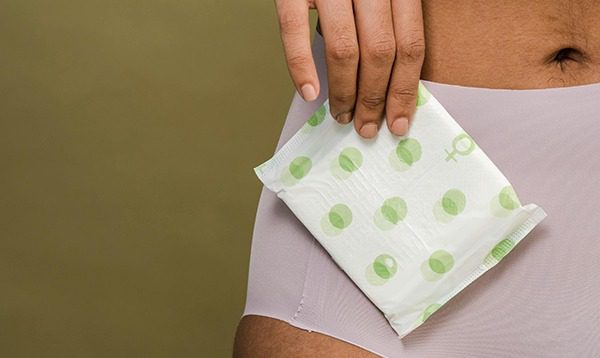Ali Weatherford
So many things change during pregnancy. You will likely notice changes in your skin, hair, breasts, and of course the belly. Something you might not hear much about is the changes you might experience in your vagina and surrounding areas during pregnancy. There is some really interesting research happening in the area of the body’s microbiome especially related to pregnancy and birth as well.
It might look different
Very early in pregnancy, you might not be able to see dramatic changes in the vagina, vulva, or labia. You might notice some slight enlargement or discoloration. Your blood supply is increasing, and this is normal. You may see more veins, and the color of your skin might look darker, or even look blue or purple! That’s ok too.
You may also notice increased discharge which is usually milky-looking and mostly thin and watery. It should not have a foul smell, be colorful, or be thick or chunky. If your discharge smells bad, or looks abnormal, talk to your care provider. Increased discharge is normal during pregnancy and is your body’s way of minimizing your risk for infections. That extra fluid can capture and remove unhealthy bacteria, keeping it from building up around the womb and causing a problem.
You may even have some bleeding. This is not all that unusual during the first trimester. It can be implantation bleeding which happens when the fertilized egg attaches to the lining of the uterus. You might also bleed a little right after vigorous exercise, an internal exam or sex. Your cervix may be a little more sensitive during pregnancy because of the increased blood flow.
Because bleeding can also be caused by miscarriage or other things, it’s best to get in touch with your care provider. Make sure you only use menstrual pads for any kind of bleeding related to pregnancy and birth. You should avoid inserting anything vaginally for bleeding.
It might feel different
Even in early pregnancy, you might notice some changes in the way things feel down there. You might feel swollen, bulgy, or enlarged. You might even feel a little tingly… in a good way. Increased blood flow to the area can sometimes lead to sexual arousal, and that is totally normal.
It would not be normal to feel a lot of itchiness or pain. That might be caused by an infection, and you should get that checked out, especially if you’re also having some abnormal discharge.
Your microbiome
Everyone has many microbiomes on their bodies. These are areas of specific colonization of microbes including bacteria, viruses, fungi, and others that are designed to help our bodies function in some way. We have a very powerful microbiome in our digestive system that helps us break down and use food for nutrition. We have a skin microbiome, a microbiome in our mouths, and among others, a very special microbiome in the vagina.
The vaginal microbiome is important because this is an area of our bodies that is very open. The vagina opens into the uterus and we have a lot of exposed mucous membranes that can be more vulnerable to infection. Fortunately, you have a very special set of microbes down there that help protect all your parts and your baby while they’re in the uterus.
There is some very interesting new research being done related to the vaginal microbiome. There is an understanding that it’s best to preserve its natural state whenever possible because it is usually a self-regulating system. They are also finding that it changes during pregnancy, and that certain types of microbiome colonization are more associated with preterm or premature birth. The research is still in the beginning stages, but might point to the idea that optimizing your microbiome might be helpful. The ways to do this are not yet proven or definitive, but some of the ideas you might consider include:
- Avoid using douches. They are not shown to be helpful in treating or preventing infections and can actually interfere with your natural healthy microbiome, making you more vulnerable to infections.
- Good hygiene practices. If you can avoid inserting anything vaginally, that’s best. Sex is not necessarily harmful, but it’s best that only clean body parts touch the vaginal area.
- Probiotics might be helpful. Maintaining a healthy microbiome is the best way to go. That can help prevent infections. Probiotics can help with that, and there is even some research that they can be used as treatment for active infections either alone or in combination with certain antibiotics. Using antibiotics is not necessarily bad, but it’s best to use ones that are targeted to avoid wiping out the healthy microbiome. Probiotics can be helpful in rebuilding the microbiome after antibiotic use as well. Probiotics might be taken as a supplement, applied to the vagina externally, or you can eat foods that are probiotic such as sauerkraut, kimchi, or other fermented vegetables, yogurt, and kombucha.
- Wear cotton or other natural fiber underwear. These are breathable and won’t trap all the moisture in creating an environment where harmful bacteria can flourish. Avoiding very tight pants might help too.
- Avoid using harsh soaps or products that use synthetic perfumes, dyes, or chemicals. That would include laundry detergent and fabric softeners. If you notice a bad smell down there, it’s best not to try and cover it up with something perfumey. It’s best to take good care of your natural defenses in the microbiome so your body can take care of the problem. Of course if you suspect that you have a worsening infection, it’s best to contact your care provider.
- General good health and nutrition. Eating a well-balanced diet of whole foods and limited sugar intake may help you maintain a healthy vaginal microbiome. Getting some exercise and good sleep might help too.
Whatever happens down there during pregnancy, know that things usually go back to normal after your baby is born and you’ve had some time to recover. As long as you are taking good care of yourself, these are just more of the weird but normal changes that people experience during pregnancy. But it’s important to set reasonable expectations for your recovery. It took many months of body changes to get your baby born, and it can take just as long or even longer for things to return to a more normal look and feel. Taking good care of yourself also means taking it easy on yourself
Your vagina and labia and vulva should go back to looking like they did before, and they should go back to feeling normal again too. It just takes a little time and care and patience. If they don’t, you can definitely see a specialist to help. Depending on the issues, you may see your primary care provider, or get a referral for a urogynecologist or a pelvic floor physical therapist or other specialist that can pinpoint the problem and help you recover.
References
https://www.ncbi.nlm.nih.gov/pmc/articles/PMC8232816/
https://www.ncbi.nlm.nih.gov/pmc/articles/PMC9366906/
https://www.ajog.org/article/S0002-9378(17)30641-5/abstract
https://www.frontiersin.org/journals/molecular-biosciences/articles/10.3389/fmolb.2021.656844/full
https://journals.plos.org/plosone/article?id=10.1371/journal.pone.0249925
https://www.texaschildrens.org/content/wellness/changes-during-pregnancy-whats-normal-and-whats-not
https://www.nhs.uk/pregnancy/related-conditions/common-symptoms/vaginal-discharge/

